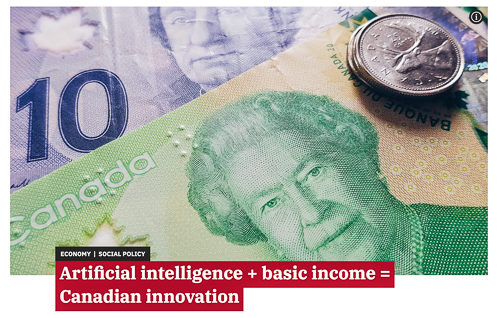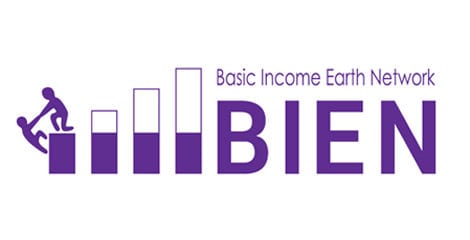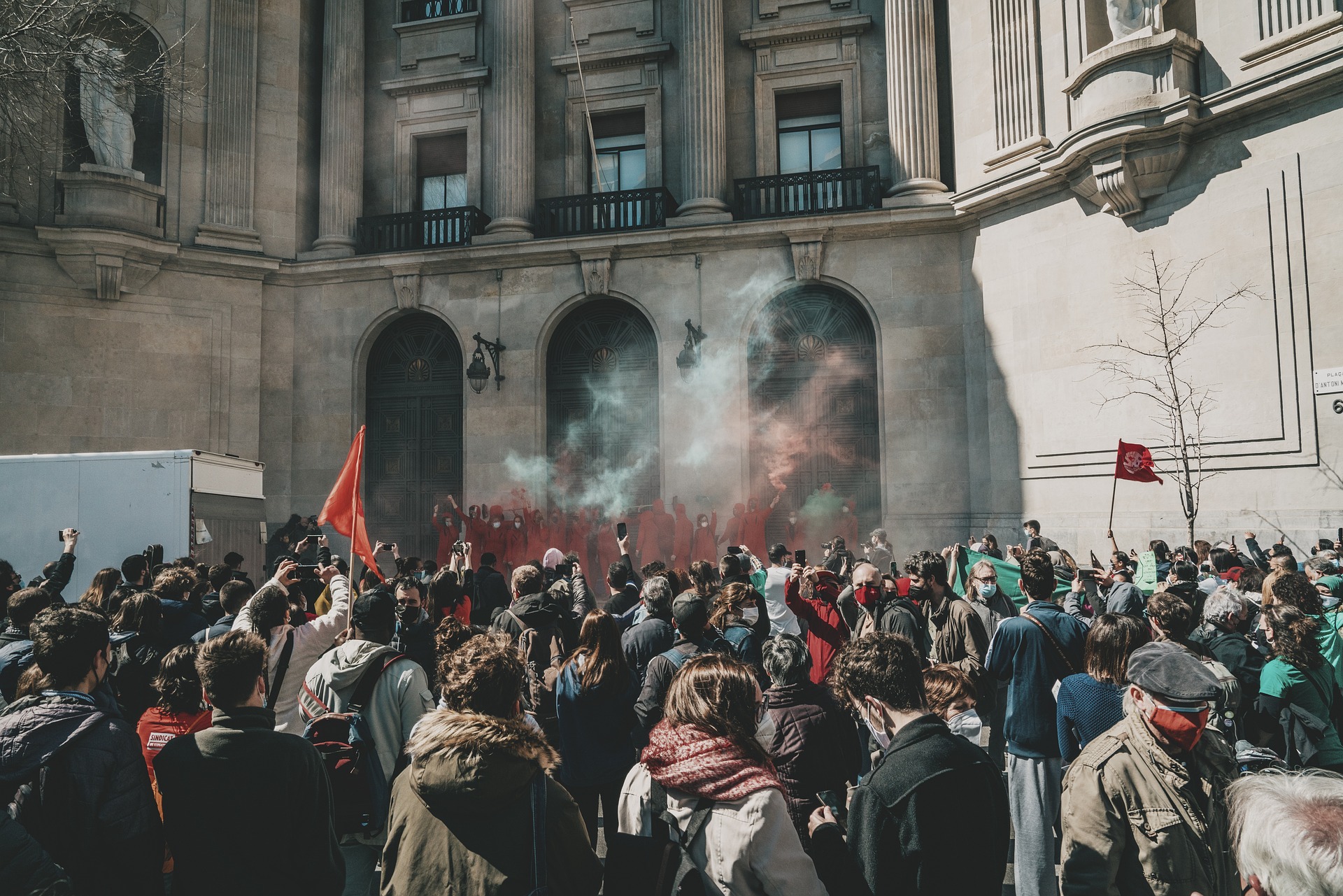
Artificial Intelligence + Basic Income = Canadian Innovation
AI threatens to end many jobs, but a basic income could ease the burden. Canada should lead this new frontier in improving human well-being.

AI threatens to end many jobs, but a basic income could ease the burden. Canada should lead this new frontier in improving human well-being.

We are seeking a dedicated and enthusiastic Volunteer Website Manager to join us at BIEN. As the Website Manager, you will play a crucial role in ensuring our website effectively communicates our mission, values, and resources dedicated to advocating for Basic Income.
To see the full job description, click here.

Abstract of a recent paper:
“We investigate the potential implications of large language models (LLMs), such as Generative Pretrained Transformers (GPTs), on the U.S. labor market, focusing on the increased capabilities arising from LLM-powered software compared to LLMs on their own. … Our findings reveal that around 80% of the U.S. workforce could have at least 10% of their work tasks affected by the introduction of LLMs, while approximately 19% of workers may see at least 50% of their tasks impacted. … The projected effects span all wage levels, with higher-income jobs potentially facing greater exposure to LLM capabilities and LLM-powered software. Significantly, these impacts are not restricted to industries with higher recent productivity growth. Our analysis suggests that, with access to an LLM, about 15% of all worker tasks in the US could be completed significantly faster at the same level of quality. When incorporating software and tooling built on top of LLMs, this share increases to between 47 and 56% of all tasks. … We conclude that LLMs such as GPTs exhibit traits of general-purpose technologies, indicating that they could have considerable economic, social, and policy implications.”
The full paper can be found here.

This month Silicon Valley Bank defaulted causing the biggest bank failure since Lehman Brothers in 2008. The US government helped in finding a solution to stop the depositors from losing their money. The main reason for the bank’s failure was a bank run because of the bank’s inability to raise enough capital after miscalculating its investment strategy and not preparing enough for the US Federal Reserve’s interest rate hikes. Credit Suisse also faced a lot of trouble which caused the Swiss government to pressure UBS (Switzerland’s biggest bank) to acquire Credit Suisse. Those two incidents might seem irrelevant to a UBI, but such events show us the importance of UBI now.
The current economic and political scene is unstable. There are a lot of tensions between the main actors USA and China on the global stage as well as the conflict in Ukraine in combination with the aftermath of the Covid crisis which hurt the global economy and supply chains. Especially Russia’s attack and Ukraine and the resulting trade war with Europe caused a supply shock in the Energy sector which led to global inflation hence rising poverty and forcing the Fed to raise interest rates. Those hikes in interest rates, slowing economic growth, and an underperforming tech sector are causing a lot of economic instability and caused recent bank failures. But the question is how that is connected to UBI.
To understand why recent events, show the importance of a Universal Basic Income it is important to think about the potential worst-case scenario. The scenario that happened to SVB and Credit Suisse might repeat. Bank depositors might fear the repetition of such a bank failure in different banks and cause more bank runs as the whole banking sector is based on trust and there is no single bank that would survive a bank run without government support. There is also doubt in the current political climate how much possible bank bailouts are politically doable especially as most people will feel that the government supports the banking gamblers with their tax money while leaving the normal average people who didn’t do anything wrong alone when they struggle because of different reasons.
So, the first connection between UBI and the current banking problems is that the implementation of UBI would increase the population’s trust in the government as people will now feel seen and protected by society and will be less negative towards a potential bank bailout. Although possible bank bailouts would have to come with increased regulation to avoid giving the banks the feeling that they can do whatever they want, and the government will protect them while they screw the people’s money.
Another reason why the current economic situation makes UBI more necessary than before is that in a climate of increasing interest rates and declining trust in banks people will draw money from the economy, hence decreasing demand. Decreasing demand will lead to decreasing supply and will increase unemployment. A lot of economists like Larry Summers confess that and say it is a bitter pill to take to reduce inflation. Let’s assume that’s correct although I’m not sure that this is the best way out of the current situation that would mean that society is sacrificing jobs and hence the wealth of a lot of people to reduce inflation for the rest.
Such action is morally wrong, especially if people aren’t given a social net that protects them after losing their jobs to provide for themselves and their families. And we have to remember that the sole reason for them being unemployed will be that the FED and other Central Banks in other countries decided that higher unemployment is necessary to reduce inflation. This would make those people and their families suffer a lot financially and mentally and they might not find a way back to bring back structure in their life without support that relieves them of the stress of having just lost their livelihood. UBI would be the perfect measure to achieve that
The third argument which highlights the importance of UBI now has to do with the real economy and supply and demand. While a huge part of inflation is caused by the supply shocks from the Ukraine war it can’t be denied that it is also caused partly by a demand that might be higher than the current supply especially as supply chains haven’t recovered completely yet. And while many people might assume that this would be an argument against UBI as UBI would most probably increase demand we have to look at it from the other side too. Giving people a Universal Basic Income would mean giving people more flexibility and more control over their lives. People will choose the jobs they want to do instead of just taking any job. This dynamic might be crucial in overcoming the current crisis. It is expected that UBI will have a positive impact on entrepreneurship and small investments and such effects have been seen partly in previous pilot programs. Giving people a UBI would hence increase supply as smart entrepreneurs will see the gap between supply demand and work on filling that gap to make profits. This will mean a virtuous way out of inflation instead of a vicious way out of inflation. It would be also a way of directly supporting the victims instead of rewarding the gamblers
While a bank crisis is still avoidable, the current situation shows the importance of UBI on multiple fronts to help people in those difficult times. The government has tried to rescue the economy through trickle-down measures often and now it’s time to give people the chance to rescue the economy themselves by giving them a fair chance and promoting entrepreneurship by introducing a UBI and following a spirit of capitalism that left and right will be able to agree on.
Written by: Ahmed Elbas

By: Nika Soon-Shiong, Founder and Executive Director, Fund for Guaranteed Income
Less than an hour’s drive from the pristine homes of Beverly Hills, the tree-lined campuses of UCLA, and the booming heart of the entertainment industry, Compton faces an economic crisis. Of its 100,000 residents, 19.5% are living at or below the federal poverty line, compared to 11.6% nationally.
In the absence of well-paying jobs, its residents – 30% of whom are Black and 68%, Latinx – are ever vulnerable to the willful neglect of our threadbare safety net. Many are unbanked, uninsured, and at the height of the pandemic, one in five was unemployed. While Hollywood has capitalized on an image of Compton as the “murder capital of the United States,” profited off of Compton’s talent, its real story is one of resilience – a bold demand for dignity in the face of an illusory American dream.
In 2020, Former Compton Mayor Aja Brown called for an abolition of poverty in the United States. Building on the ideological foundation laid by Dr. Martin Luther King, she explained that this was neither niche nor “radical,” but a politics of care rooted in decades of empirical research. Since that day, we at the Fund For Guaranteed Income (F4GI) have worked tirelessly to advance that vision: building and scaling the technological infrastructure needed to disperse cash payments broadly, including to people historically excluded from the welfare state like undocumented and formerly incarcerated individuals.
Beyond economics and the pursuit of good public policy, our work is deeply human.
Our implementation of guaranteed income pilots began with the Compton Pledge, a two-year program supporting 800 low-income families in the cultural heart of California. Since launch, it has distributed $6 million out of a total allocated $10.2 million, which the Jain Family Institute projects will close 70% of the racial wealth gap for the average participating family. Additionally, The Compton Pledge has brought calls on the government to “pilot programs for universal basic income” into the national mainstream. Collaborating with independent researchers to study the impact of raising the income floor, we have been able to see first-hand the benefit of these cash flows on employment opportunities, mental and physical health, and the strength of these communities.
A mother of two with chronic illness was able to afford her medications; a woman subsisting on poverty wages was able to pay her bills, then invest the incremental time on finishing her degree. In essence, they were afforded the dignity we all deserve. We are actively working with participants to tell their stories, through narrative cohorts like The Voices of Compton Pledge (VOCP), reframing flawed and racist welfare stereotypes, and advancing a liberatory shift in paradigm.
Today, F4GI connects ~2000 low-income residents to cash, case management, and community resources monthly. New pilots have emerged in other cities, most recently Long Beach, where the Long Beach Pledge will provide 250 single-head families in one of the areas most devastated by COVID-19 with cash payments, $500 per month for one year, along with services like financial counseling intended to invest in their long term prosperity. It is made possible by the Long Beach Recovery Act, a plan to fund economic and public health initiatives for Long Beach residents, workers and businesses critically impacted by the COVID-19 pandemic. The City of Long Beach has partnered with F4GI to create the program’s payment platform, which connects qualified participants to support services like financial counseling, in addition to distributing the monthly payments.
Our work aims to be as nimble and innovative as the systems cementing poverty are sinister. We will continue to advance the evidence base around accessible welfare systems, develop the tools which can create them, and build the coalitions that will demand them. Forever grateful to the City of Compton for allowing us to implement this initiative, we aim to continue expanding our pledge across city lines, and eventually the nation.